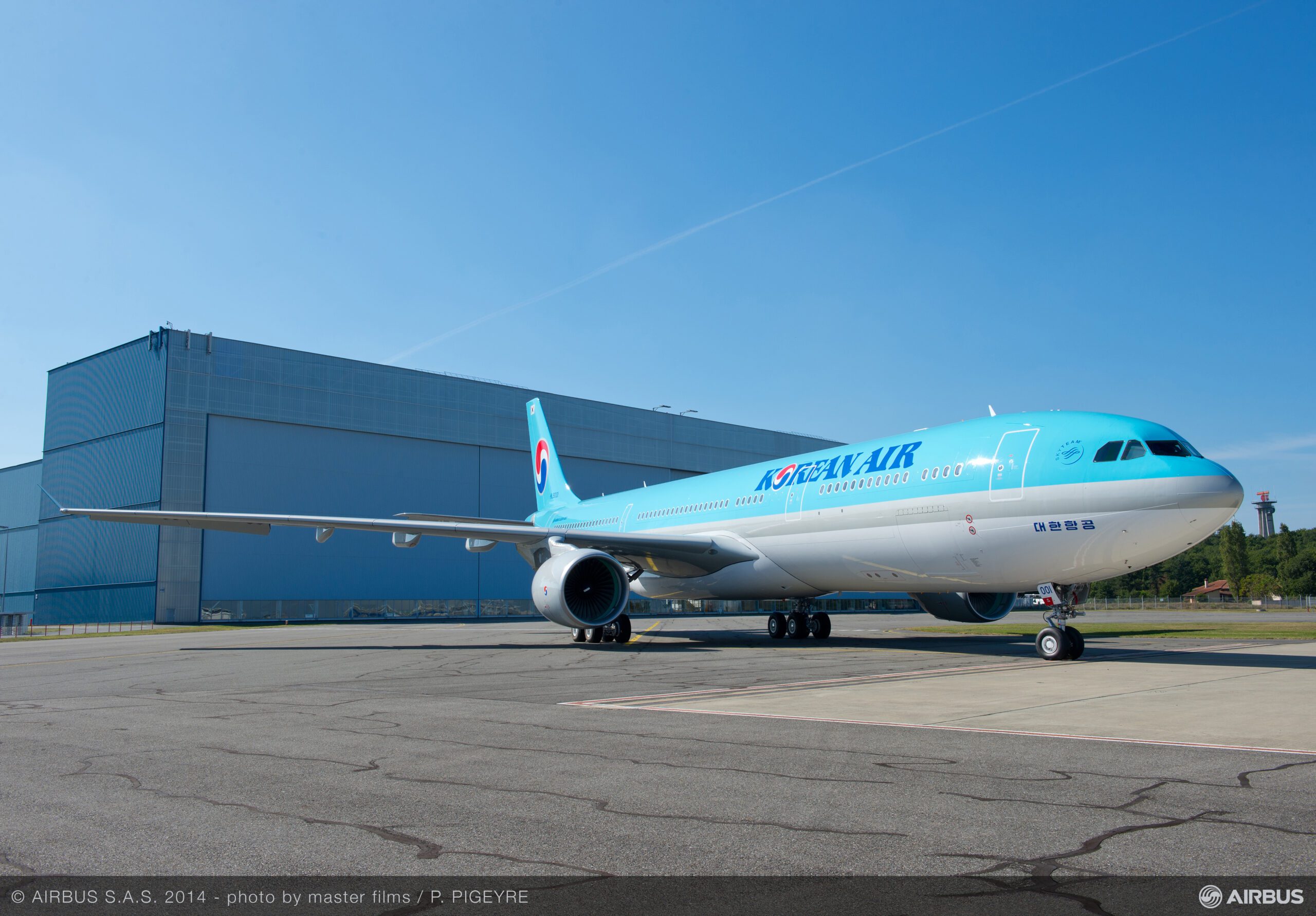
A330 300 Korean Air Lines MSN1556 on ground scaled
A strong performance from the cargo segment helped Korean Air to post an operating profit of nearly 439 billion won during the third quarter of 2021, a significant jump from the 7.6 billion won profit for the same period in 2020. Korean Air’s investor presentation for the quarter showed that the cargo segment’s revenue showed the highest growth, followed by the passenger segment. This helped to offset declines in revenue from its other businesses, including its aerospace division.
Total revenue for the quarter ended 30 September 2021 was up 43.6 percent to nearly 2.3 trillion won. Operating expenditure grew 16 percent to 1.8 trillion won, as higher fuel consumption and prices were the key contributors. The carrier was also able to post a net profit of 134 billion won, reversing the 386 billion net loss for the same period last year.
For the cargo segment, Korean Air attributed the strong results to factors such as “persistent demand” from the multiple industrial sectors, the ongoing fight against COVID-19 such as test kits and vaccinations, as well as supply chain disruptions.
The passenger segment saw a recovery, aided by the public holidays in South Korea and domestic vacations, travellers heading to the Tokyo 2020 Olympics, and international students travelling to the United States for their studies.
Korean Air sees positive outlook
Looking ahead, Korean Air foresees rising demand for international travel, as quarantine-free travel opens up. Capacity to select markets will increase in tandem with the reopening of national borders, while maintaining a “flexible operation” until international travel resumes.
The carrier also expects cargo to continue to perform strongly, due to the holiday season in the final months of the year, along with logistical challenges faced at ports. To maximise revenue, it will optimise its fleet deployment and network, while also working to ensure operational stability.
As of 30 September 2021, Korean Air operated a fleet of 156 passenger and freighter aircraft, a net reduction of three. While it phased out four Boeing 737s, it took in one Airbus A330 after Czech Airlines returned a leased aircraft back to Korean Air.
Having announced plans to acquire Asiana Airlines in November 2020, Korean Air is working to secure approvals from multiple authorities on the proposed acquisition. Upon obtaining the required approvals, Korean Air will then acquire 63.9 percent stake in Asiana, before starting an integration process that will take place over a two-year period.
Views: 0




